Filter by
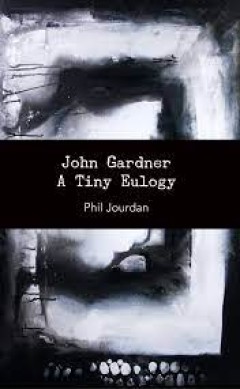
John Gardner: A Tiny Eulogy
John Gardner’s career was permanently changed by his publication of On Moral Fiction (1978), a controversial and derided assessment of the state of literature as Gardner saw it. By arguing for a return to greater seriousness and moral commitments in literature, Gardner found himself attacked on all sides by critics and writers who found his conservatism suspicious or simply irrelevant. In thi…
- Edition
- -
- ISBN/ISSN
- 9780615734514
- Collation
- -
- Series Title
- -
- Call Number
- -
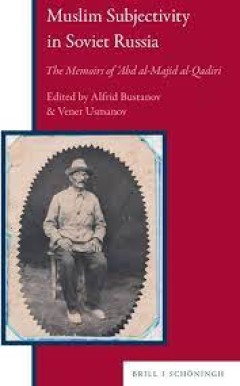
Muslim Subjectivity in Soviet Russia The Memoirs of ’Abd al-Majid al-Qadiri
The world as seen by a Qur’an specialist in late imperial and early Soviet Russia. Our book tells a dramatic story of ’Abd al-Majid al-Qadiri, a Muslim individual born in the Kazakh lands and brought up in the Sufi environment of the South Urals, who memorized the entire Qur’an at the Mosque of the Prophet. In Russia he travelled widely, performing the Qur'an recitations. The Stalinist te…
- Edition
- -
- ISBN/ISSN
- 9783657793778
- Collation
- -
- Series Title
- -
- Call Number
- -
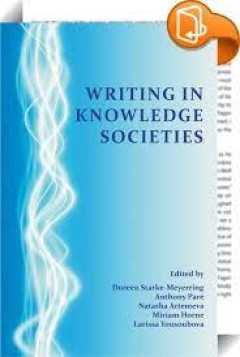
Writing in Knowledge Societies
The editors of Writing in Knowledge Societies provide a thoughtful, carefully constructed collection that addresses the vital roles rhetoric and writing play as knowledge-making practices in diverse knowledge-intensive settings. The essays in this book examine the multiple, subtle, yet consequential ways in which writing is epistemic, articulating the central role of writing in creating, shapin…
- Edition
- -
- ISBN/ISSN
- 9781602352681
- Collation
- -
- Series Title
- -
- Call Number
- 411 STA w
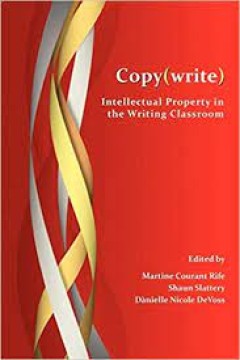
Copy(write) : Intellectual Property in the Writing Classroom
The editors of Copy(write): Intellectual Property in the Writing Classroom bring together stories, theories, and research that can further inform the ways in which we situate and address intellectual property issues in our writing classrooms. The essays in the collection identify and describe a wide range of pedagogical strategies, consider theories, present research, explore approaches, and of…
- Edition
- -
- ISBN/ISSN
- 9781602352643
- Collation
- -
- Series Title
- -
- Call Number
- 340 RIF p
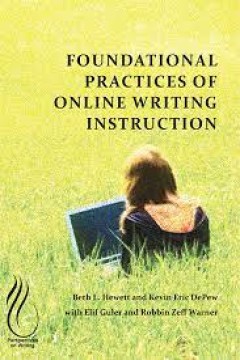
Foundational Practices of Online Writing Instruction
Foundational Practices of Online Writing Instruction, edited by Beth L. Hewett and Kevin Eric DePew, with associate editors Elif Guler and Robbin Zeff Warner, addresses the questions and decisions that administrators and instructors most need to consider when developing online writing programs and courses. Written by experts in the field (members of the Conference on College Composition and Com…
- Edition
- -
- ISBN/ISSN
- 9781602356658
- Collation
- -
- Series Title
- -
- Call Number
- 370 FOU
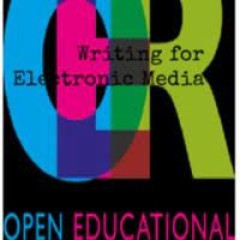
Writing for Electronic Media
Writing for Electronic Media, an OER textbook. OER stands for Open Educational Resource, which means it’s free for all who access. Since it is electronic, I will do what I can to keep it updated with the changing media. People’s viewing habits are changing as they migrate to mobile sources, social media, and kitten videos.Television News is still a dominant #1 source, and radio is still the…
- Edition
- -
- ISBN/ISSN
- -
- Collation
- -
- Series Title
- -
- Call Number
- 807
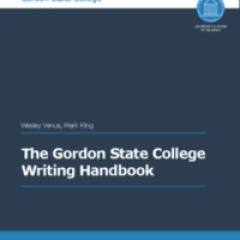
The Gordon State College Writing Handbook
Members of the Gordon faculty have collaborated on the authorship of this guide, and it is targeted directly at Gordon students to help them with their writing across the GSC curriculum. This guide provides at least three distinct advantages over other guides: it is specifically targeted to Gordon State students, it covers writing across the whole curriculum, not just English; and it is free. …
- Edition
- -
- ISBN/ISSN
- -
- Collation
- -
- Series Title
- -
- Call Number
- 400 VEN g
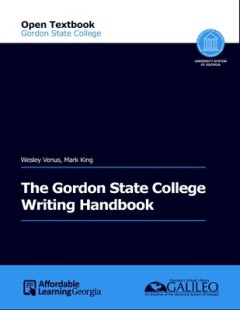
The Gordon State College Writing Handbook
Members of the Gordon faculty have collaborated on the authorship of this guide, and it is targeted directly at Gordon students to help them with their writing across the GSC curriculum. This guide provides at least three distinct advantages over other guides: it is specifically targeted to Gordon State students, it covers writing across the whole curriculum, not just English; and it is free. …
- Edition
- -
- ISBN/ISSN
- -
- Collation
- -
- Series Title
- -
- Call Number
- 421 VEN g
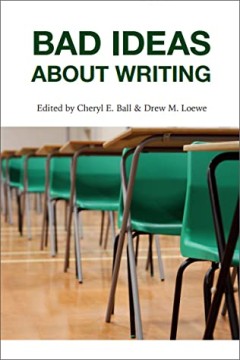
Bad Ideas About Writing
intend this work to be less a bestiary of bad ideas about writing than an effort to name bad ideas and suggest better ones. Some of those bad ideas are quite old, such as the archetype of the inspired genius author, the five-paragraph essay, or the abuse of adjunct writing teachers. Others are much newer, such as computerized essay scoring or gamification. Some ideas, such as the supposed demis…
- Edition
- -
- ISBN/ISSN
- 978-0-9988820-0-0
- Collation
- -
- Series Title
- -
- Call Number
- 421 BAD
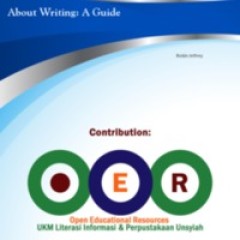
About Writing: A Guide
This writer’s reference condenses and covers everything a beginning writing student should need to successfully compose college-level work. The book covers the basics of composition and revising, including how to build a strong thesis, how to peer review a fellow student’s work, and a handy checklist for revision, before moving on to a broad overview of academic writing. Included for those …
- Edition
- -
- ISBN/ISSN
- -
- Collation
- -
- Series Title
- -
- Call Number
- 411 JEF a
 Computer Science, Information & General Works
Computer Science, Information & General Works  Philosophy & Psychology
Philosophy & Psychology  Religion
Religion  Social Sciences
Social Sciences  Language
Language  Pure Science
Pure Science  Applied Sciences
Applied Sciences  Art & Recreation
Art & Recreation  Literature
Literature  History & Geography
History & Geography